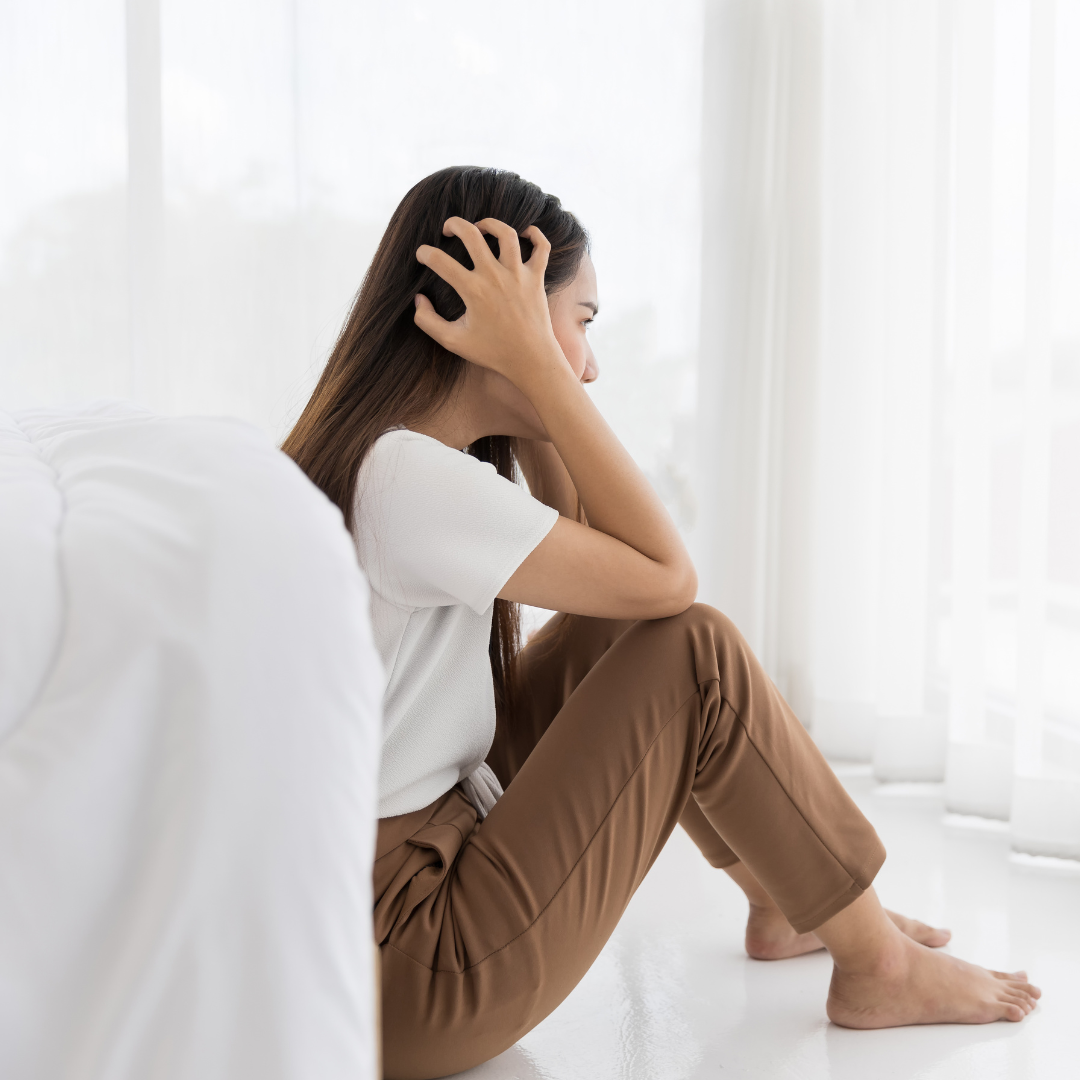
Stress and anxiety disorders are mental health conditions that cause some people to feel fearful, embarrassed, or worried when in social situations and experience related physical symptoms. While there is no cure for anxiety disorders, we can take steps to manage the symptoms.
What are Stress and Anxiety?
Stress and anxiety are terms that are often used interchangeably, but they mean two different things.
Stress is a general feeling of tension, nervousness, and pressure. It’s usually caused by something out of our control, like a deadline at work or a test coming up.
Anxiety is a more specific type of stress. It’s characterized by feelings of fear and dread, along with physical symptoms like an increased heart rate and stomachache. Anxiety can make it hard to concentrate, sleep well, and enjoy life.
Health Issues Caused by Stress and Anxiety
Many health issues can be caused by stress and anxiety. Some of the most common include:
Increased Risk of Heart Disease
Stress and anxiety can increase the risk of heart disease by increasing cortisol levels and other hormones harmful to the heart. Cortisol is also known to increase blood pressure and cholesterol levels, which can all lead to heart disease.
Increased Risk for Mental Health Problems
Stress and anxiety can also increase the risk of mental health problems, such as depression or anxiety disorders. This is because stress and anxiety can hurt our mood and ability to function at work or school, leading to additional mental health problems.
Increased Risk for Chronic Pain Conditions
Stress and anxiety may also increase our risk of developing chronic pain conditions like fibromyalgia or chronic headache syndrome. Chronic pain conditions are often long-term and difficult to treat, so adding one to an existing state can be very challenging.
Increased Risks for Substance Abuse Problems
People with higher levels of stress and anxiety may be more likely to develop alcohol or drug abuse problems due to their inability to cope with stressful situations effectively. This is because substance abuse is often used to escape complicated feelings or life challenges.
Difficulty Sleeping
Poor sleep habits are often a result of stress and anxiety, as both conditions tend to make it difficult to get restful nights of sleep. This can lead to daytime fatigue, mood swings, and even more stress and anxiety in the future.
Increased Risks for Developing Obesity
Stress and anxiety may also increase our risk of developing obesity since people who are obese typically have higher levels of stress and anxiety. This is because obesity is often associated with several health conditions, such as high blood pressure, heart disease, and type 2 diabetes.
Difficulty Concentrating
Poor concentration can be a side effect of stress and anxiety, as both conditions can make it difficult to focus on anything for an extended period. This can lead to difficulties at work or school and finding or holding down a job or career.
Difficulty Maintaining Healthy Eating Habits
Many people with stress and anxiety find it difficult to maintain healthy eating habits. They are often too busy or stressed to cook or eat meals independently. This can lead to weight gain and other health issues such as type 2 diabetes or heart disease.
How to Deal with Stress and Anxiety
There is no easy answer to dealing with stress and anxiety, but there are certain things that we can do to help. Here are some tips on how to deal with stress and anxiety:
- Identify the source of our stress. Is it a deadline at work, a family situation, or something else? Once we know what is causing our stress, try to find ways to deal with it separately from our job or other responsibilities.
- Take care of ourselves physically and mentally. Get enough sleep, eat healthy foods, exercise regularly, and avoid anything stressing us out.
- Talk about our feelings with someone we trust. Discussing our concerns and fears can be very helpful in managing them effectively.
- Get organized. Stress tends to cause us to be disorganized, which worsens the problem. Try creating positive lists of goals and tasks we want to accomplish during our day so that everything feels more manageable.
Quick Tips to Manage Stress and Anxiety
We can do a few things to manage our stress and anxiety.
First, be aware when we’re starting to feel stressed or anxious. When we begin to feel this way, take some time for ourselves and relax. This may mean taking a break from work, closing our eyes and letting our mind wander, or going for a walk. Taking time for ourselves will help us calm down and regain control.
If we have been stressed or anxious for a while, we should consider taking a day off to relax and rejuvenate. We can either relax in the comfort of our house (if that is preferred), or go treat ourselves to a nice spa day. The massage therapist at the spa can help release the tension in our body and alleviate stress by promoting a sense of calm. Additionally, most spas tend to use aromatherapy that utilizes essential oils such as lavender oil which can help reduce feelings of anxiety and stress.
Secondly, we can practice meditation or mindfulness. This can help us to focus on our breath and stay in the present moment. It can also help to reduce stress levels overall.
Furthermore, for individuals seeking additional support in managing stress and anxiety, medical cannabis could be an option worth considering. Cannabis can be instrumental in alleviating these challenging emotions as well as providing relief from stress-induced pain.
It’s crucial to consult a qualified doctor about this avenue before using them. Once the doctor approves such medication, you can look for reliable cannabis outlets like this well-regarded illinois dispensary that can provide the required cannabis products and assist you in navigating this path towards improved well-being.
Some individuals also turn to smoking cigarettes as a coping mechanism to alleviate daily stress. This habit often begins innocuously, with people seeking relief from the pressures and anxieties of their everyday lives. The act of smoking can offer a temporary escape, as the nicotine in cigarettes provides a quick release of dopamine, a neurotransmitter associated with pleasure and reward. This rush of dopamine can create a sense of relaxation and relief, making it seem like an effective stress-relief tool in the short term.
However, the long-term consequences of smoking far outweigh these momentary benefits, as smoking is a major cause of various health issues, including cancer, heart disease, and respiratory problems. Over time, the stress-reduction effect diminishes, and individuals find themselves trapped in a harmful addiction cycle. If at all they need to smoke something, they can turn to disposable vapes as it is a less harmful way to consume nicotine. But keep in mind to explore other alternative ways to reduce anxiety.
Finally, keep a positive attitude towards stress and anxiety. This can be hard in the short term, but it will make a big difference over time. Remember that stressful situations are temporary, and everything will eventually work fine.
Keep Calm, and Don’t Stress Out
It can be hard to get through the day when faced with stress or anxiety. Even small things can set off a flare-up; before long, we find ourselves overwhelmed and struggling to cope.
But it is something that should be managed before it becomes unmanageable. There are a few things that you ought to do to manage how you’re feeling. A great way to distract yourself is by engaging with those really close to you. This could help you remain in a calmer mental state.
You should also give self-care a thought. It is a set of activities dedicated to helping you feel and look better. Likewise, you might want to try out self-pleasure too. There are many adult cam sites at https://www.freecamsreport.com/ which you could try out to help explore your sexuality, for starters.
Apart from the many things that you could be doing to deal with stress and anxiety, the most important thing you should do is seek help. It’s important to remember that there is help available and that by seeking advice from a trusted friend or family member or enrolling in therapy, we can start overcoming our anxiety problems. Remember: There is always light at the end of the tunnel!



